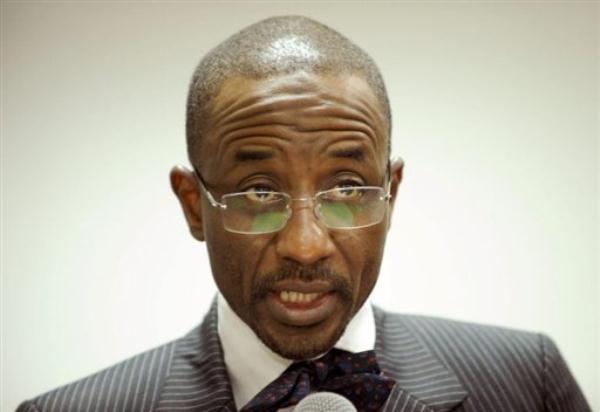AMCON is Succeeding, Says Sanusi
Contrary to the suggestion by the International Monetary Fund (IMF) that the Asset Management Corporation of Nigeria (AMCON) should wind down its operations, the Governor of the Central Bank of Nigeria (CBN), Mallam Sanusi Lamido Sanusi, has said the corporation is on track and is achieving its goals.
Sanusi, who said this at a press briefing by the Nigerian delegation on the outcome of the 2013 Spring Meetings of the IMF/World Bank in Washington DC, spoke alongside the Coordinating Minister for the Economy and Minister of Finance, Dr. Ngozi Okonjo-Iweala.
Part of the IMF’s 2012 Article IV consultation on Nigeria had recommended the winding down of the operations of AMCON over what it described as the need to curb moral hazard and fiscal risks.
But Sanusi noted that having taken over N4 trillion non-performing loans from Nigerian banks with huge risks, the ‘bad bank’ has helped in stabilising the banking industry.
To him, the success of the organisation should be viewed from its functions, which he said had so far been “amazing.”
“AMCON is succeeding. It now requires to go to the next step. Everything is under control. Nigerians should be rest assured that AMCON is on track. The risks are being well managed. It is a risk we understand, and we have a solution. It is not beyond our capability to manage, we have managed a more difficult banking crisis,” he said.
The CBN governor maintained that AMCON was set up for a purpose which had been achieved adding that “the next step now which is more difficult, is to continue to manage AMCON so that those risks do not continue to crystalise because having solved one problem, it has to be dealt with over a longer period.”
According to him, the plan now is that over the next 10 years, AMCON, the central bank and the commercial banks would have to generate money to liquidate the debt.
However, speaking on the management of the economy, Sanusi pointed out that the World Bank had commended Nigeria over the economic growth recorded as well as the buffers it is building to safe-guard any future financial crisis.
He said the Bretton Woods institution therefore advised low-income countries to emulate Nigeria.
On her part, Okonjo-Iweala stated that the federal government would launch $1 billion Eurobond for the financing of the gas-to-power investment and bulk trader, in June this year.
She said: “We have put a time-table together for a road show in relevant markets in London, New York, Los Angeles and elsewhere, where investors will be interested in the Eurobond offer. This will be our second Eurobond. The yields on Nigerian bond are favourable, the price is up. This is a propitious time for us to go and launch the Eurobond. Basically, June is the time that we are going to launch the Eurobond.
“This bond will go specifically to support the energy sector, it will support gas-to-power investment, to complete the gas to power pipeline and the rest will go to support the bulk trader in order for us to be able to realise the structural reform in the power sector.”
Okonjo-Iweala added that as soon as the Eurobond offer is concluded, the government would work on the Diaspora bond, expressing the hope that by the end of the year, the later would also be concluded.
She also expressed optimism that the bond would be another avenue to engage Nigerians in the Diaspora.
( This Day )








